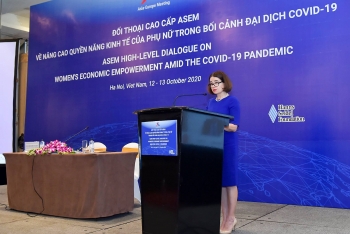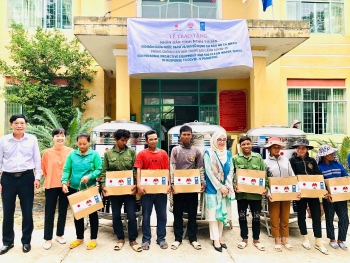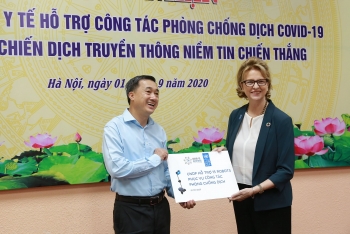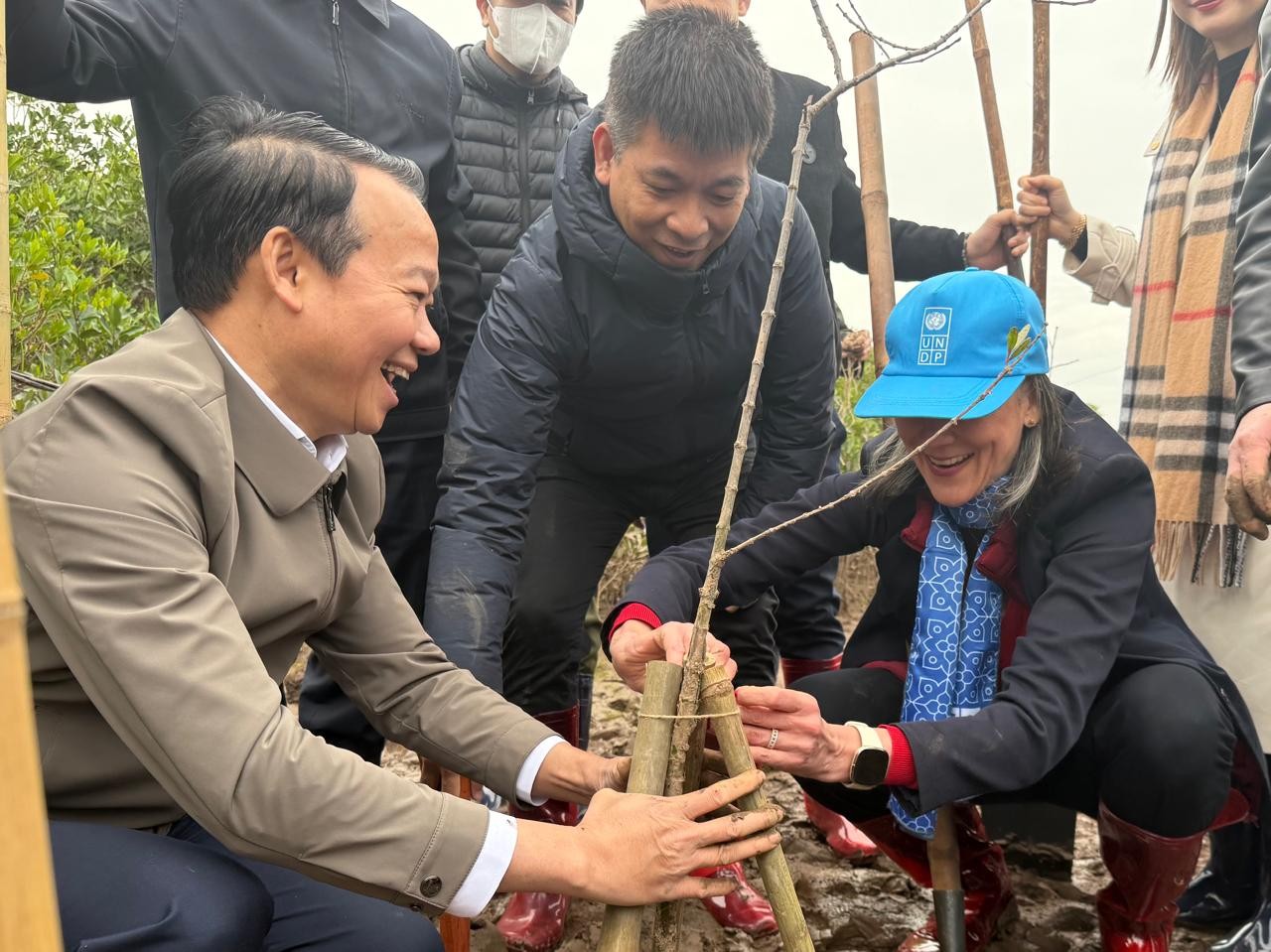UNDP supports poor farmers in Binh Thuan affected by COVID-19
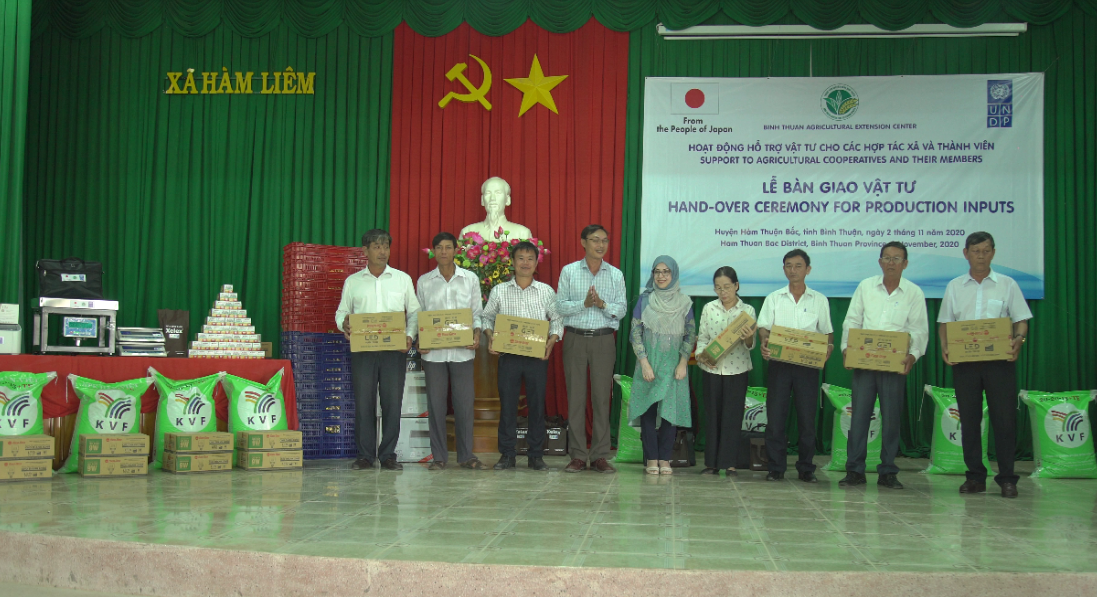 |
| At the hand-over ceremony. Photo: UNDP Vietnam |
The United Nations Development Programme (UNDP) and the Binh Thuan Agricultural Extension Center handed over agricultural production equipment and materials including fertilizer (200,850 kg), 195,500 LED lights, water-saving irrigation systems for 13 hectares, and other equipment to support the management of 15 dragon fruit cooperatives and their members.
This is an activity funded by the Government of Japan to ensure that more than 2,000 cooperative households and poor laborers affected by COVID-19 do not lose their jobs.
Due to COVID-19, the export of dragon fruits this year has faced many difficulties, and consumption has decreased significantly. Many members of dragon fruit cooperatives face the danger of having to close down, forcing the reduction of labor. Thousands of poor farmers have had to abandon their planting area or no longer continue to invest in caring for the dragon fruits from the first and second quarters. It has made the lives of the poor farmers who are currently working in these cooperatives very difficult.
A recent UNDP assessment of the effects of the pandemic and drought conducted in Binh Thuan province found that 54 percent of households are facing these extreme impacts. Therefore, UNDP and the Binh Thuan Agricultural Extension Center have worked together to support the dragon fruit cooperatives to maintain production linkages among cooperative members and poor farmers who have not yet worked at the cooperative, as well as maintaining jobs for poor workers who are members.
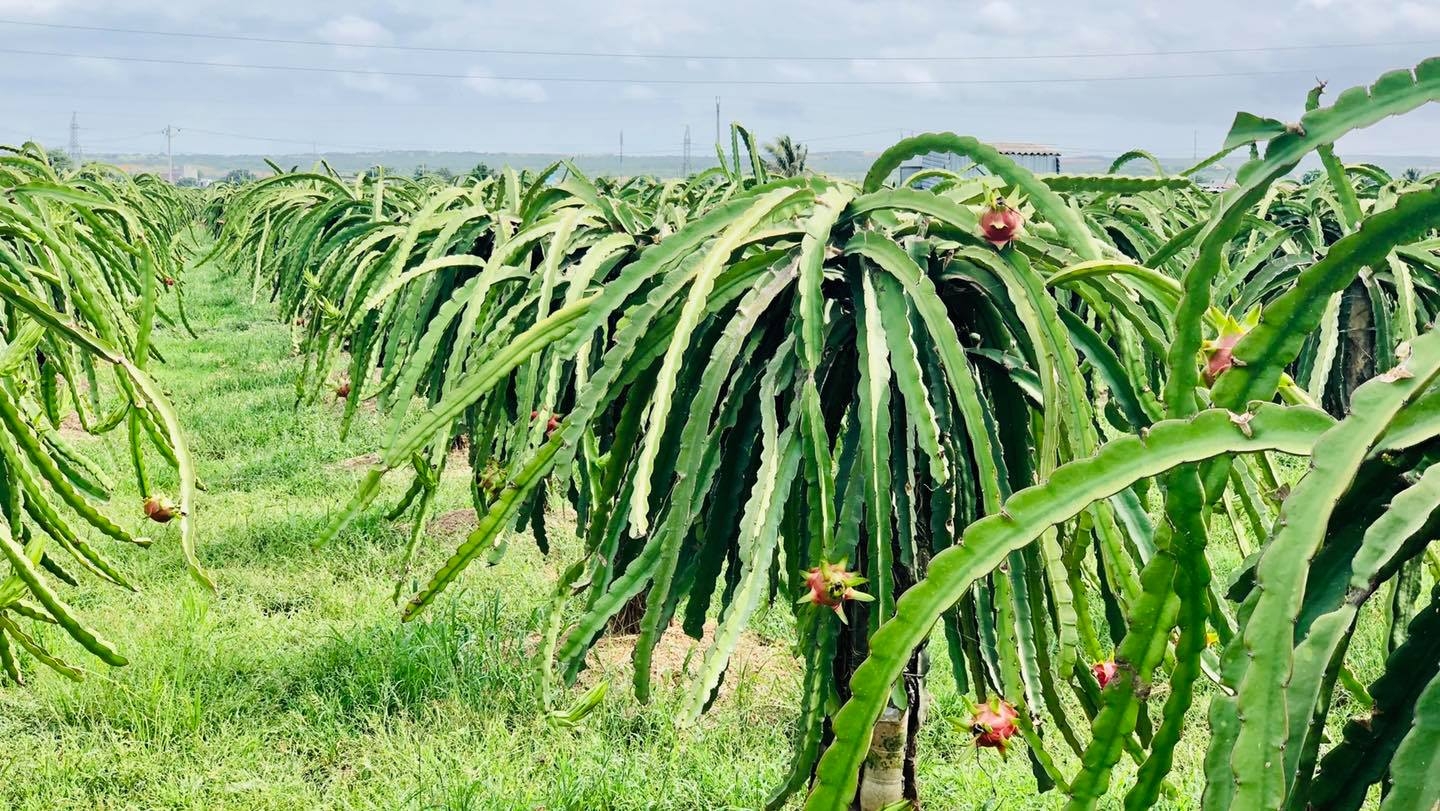 |
| Export and consumption of dragon fruit has plummeted as a result of the COVID-19 pandemic, forcing cooperatives to lay off many unskilled workers. Photo: UNDP Vietnam |
“Members and poor farmers in Binh Thuan province mostly have a small area for dragon fruit cultivation. They work as labor for dragon fruit cooperatives. Through the support to these dragon fruit cooperatives, to help farmers continue to have income, the cooperatives commit to having and will continue to maintain product consumption and secure jobs for workers,” said Sitara Syed, UNDP Deputy Resident Representative in Vietnam.
“LED lighting, drip irrigation systems, and other equipment provided by the project will improve efficiency and yields and reduce energy and water consumption. In this way, dragon fruit production will have a reduced carbon footprint, helping Vietnam to achieve its nationally determined contributions (NDC) to reduce carbon emissions,” she highlighted.
In addition, the project also supports construction items for preliminary processing houses, cold storage, and other technical assistance, such as training on dragon fruit intensive farming, improving cooperative leadership capacity, electronic software for traceability, and marketing skills through which cooperatives can meet the export standards of dragon fruits to foreign countries, contributing to the expansion of export markets for dragon fruit products./.
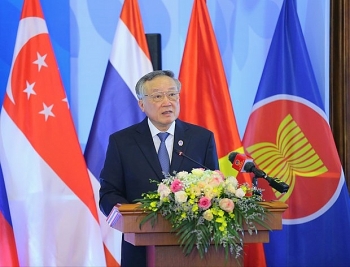 | Vietnam's Chief Justice elected as President of Council of ASEAN Chief Justices Chief Justice of the Supreme People’s Court of Vietnam Nguyen Hoa Binh was elected as President of the Council of ASEAN Chief Justices (CACJ) for ... |
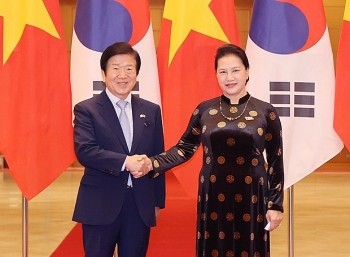 | Korean NA Speaker wraps up five-day official visit to Vietnam Speaker of the Republic of Korea (RoK)’s National Assembly (NA) Park Byeong-seug left Ho Chi Minh City on November 4 evening, concluding his five-day official ... |
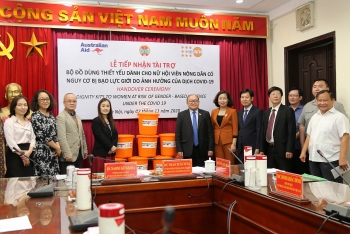 | 3,700 dignity kits presented to women at risk of violence amid COVID-19 The Dignity Kits will be distributed to women at high risk of Gender-Based Violence (GBV) in humanitarian context, particularly in COVID-19 pandemic, through national and ... |
Recommended
 Economy
Economy

